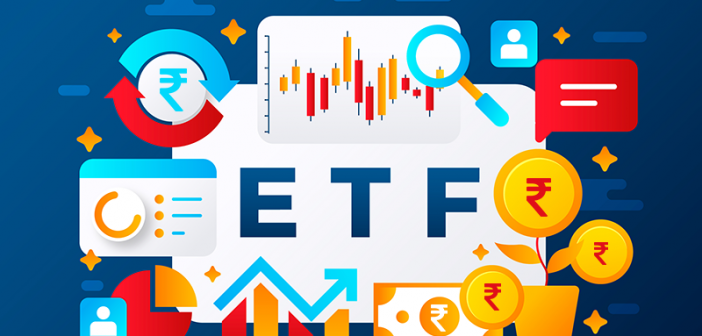As Indian markets continue to present dynamic opportunities for retail investors, exchange-traded funds (ETFs) are gaining popularity due to their lower expense ratios, liquidity, and broad exposure across sectors. ETFs offer a practical approach for smaller investors to diversify their portfolios without having to pick individual stocks, allowing them to tap into various market segments with ease. Here’s a look at five ETFs that retail investors should consider for the week starting November 11, 2024, based on their recent performance, market relevance, and sector exposure.
1. Nippon India ETF Junior BeES (JUNIORBEES)
Junior BeES tracks the Nifty Next 50 Index, providing exposure to India’s next 50 largest companies beyond the Nifty 50. This ETF offers investors a stake in mid-cap stocks with high growth potential, particularly as these companies often demonstrate resilience and the capacity for steady gains. With a 1-year return of approximately 68.82%, this fund is ideal for growth-oriented investors seeking diversification beyond large-cap stocks.
.The Nippon India Junior BeES ETF benefits from a diversified sector allocation, including industries like financial services, consumer goods, and industrials, providing retail investors with broad market exposure while minimizing risk in volatile markets.
2. SBI Nifty Next 50 ETF (SETFNN50)
The SBI Nifty Next 50 ETF also mirrors the Nifty Next 50, offering robust long-term returns and growth potential. Managed by the State Bank of India, this fund provides confidence in liquidity and stability. Over the past year, the ETF has delivered returns close to 68.70%, making it highly competitive within the mid-cap space and appealing to investors who aim for sector-balanced growth.
Given the fund’s diversification and SBI’s established position in the market, this ETF is an excellent choice for those looking to gain exposure to large emerging companies likely to be future leaders in their respective sectors.
3. ICICI Prudential Gold ETF (ICICIGOLD)
For investors seeking a safe haven, ICICI Prudential Gold ETF offers a direct route to investing in gold without the need to hold physical assets. Gold’s role as a hedge against inflation and market volatility is crucial, particularly in times of economic uncertainty. In the past year, this ETF has shown steady returns of about 10–12%, with recent demand fueled by geopolitical tensions and inflation concerns.
The Gold ETF allows Indian investors to align with global gold prices while avoiding the logistical costs and storage risks of physical gold. This ETF is suitable for conservative investors aiming for stability in their portfolios through precious metals.
4. HDFC Sensex ETF (HDFCSEN)
The HDFC Sensex ETF closely tracks the performance of the BSE Sensex 30, covering India’s top 30 large-cap companies. This ETF is ideal for investors who want exposure to India’s blue-chip companies, which represent stability and market resilience. With a 1-year return of 18.43%, it offers solid returns for retail investors seeking low-risk, blue-chip exposure in a diversified ETF format.
HDFC’s Sensex ETF’s composition in financial services, information technology, and consumer goods sectors means that investors benefit from a balanced yet stable growth opportunity, making it suitable for conservative portfolios.
5. Motilal Oswal Nasdaq 100 ETF (MOFN100)
For investors looking to diversify internationally, the Motilal Oswal Nasdaq 100 ETF provides exposure to the U.S. market, specifically the tech-heavy Nasdaq 100 Index. This fund includes companies like Apple, Amazon, and Microsoft, allowing investors to participate in the growth of leading global technology and consumer companies.
Over the past year, the ETF has generated returns around 30%, supported by the robust performance of tech and innovation sectors in the U.S..
. The Nasdaq 100 ETF offers Indian investors a convenient way to diversify globally and hedge against domestic market risks, making it a strategic addition for long-term growth.
Final Thoughts
These ETFs offer a range of options suitable for retail investors with different financial goals and risk appetites. From stable, blue-chip exposure in HDFC’s Sensex ETF to the high-growth potential of the Nasdaq 100 via Motilal Oswal, investors can align their choices with both market trends and personal risk tolerance. As always, considering one’s investment horizon and the overall economic landscape is essential when selecting ETFs.




